Agriculture & Environment
Journalists Urged to Double Efforts on Environment Conservation Reporting
Published
5 years agoon
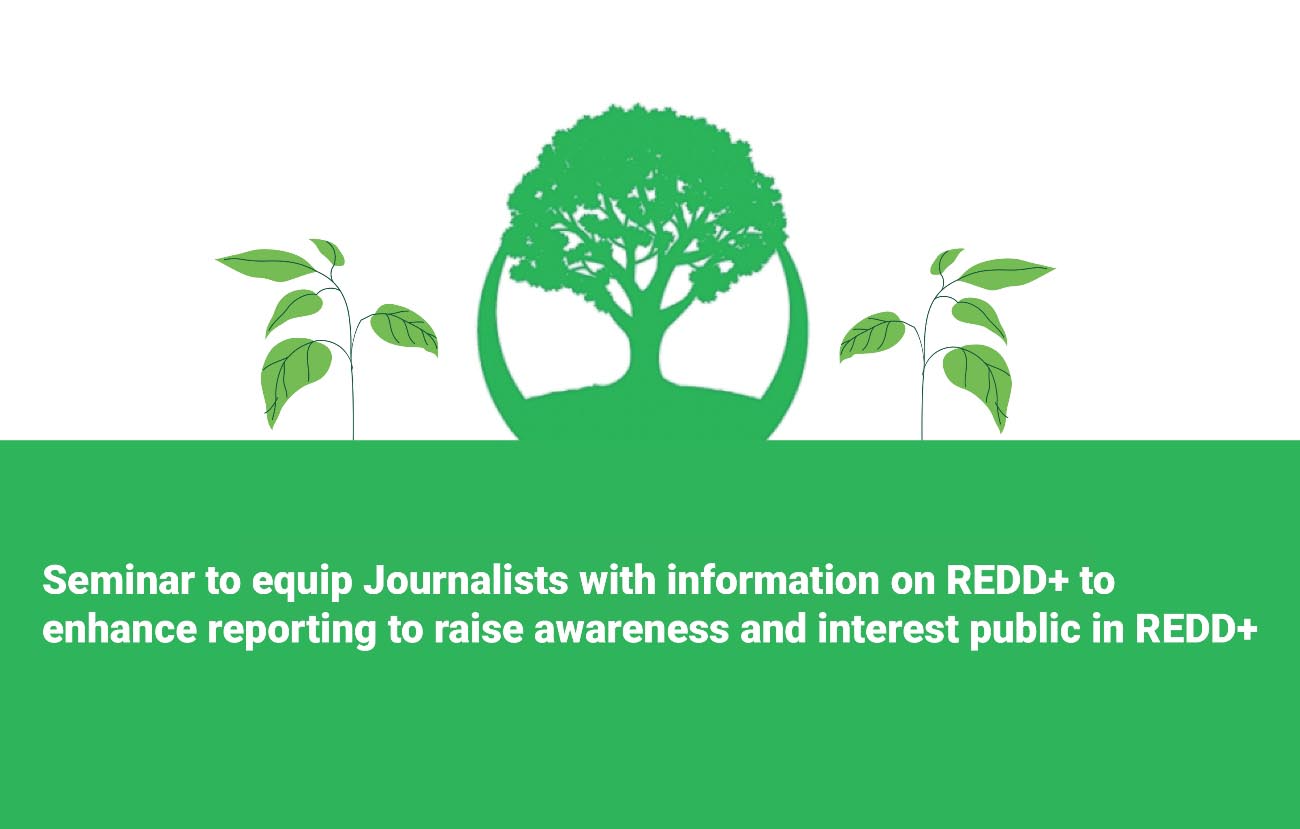
Environment conservationists have appealed to journalists to enhance their efforts on public awareness and policy action for forest conservation when executing their reporting duties. This was during a virtual media engagement organized by the REDD+ East Africa (REDD-EA), on 13th October 2020, to provide updates on Building capacity for REDD+ in East Africa for improved ecosystem health and for sustainable livelihoods in Eastern Africa.
The meeting convened over 20 journalists, communication specialists, representatives from Ministry of Water and Environment (MWE) and experts in environment conservation from REDD-EA at Makerere University.
REDD+ stands for; Reducing Emissions from Deforestation and Forest Degradation plus Conservation of Carbon Stocks, Sustainable Management of Forests, and Enhancement of carbon stocks. It is a multilateral policy aimed at conserving forests for the mitigation of climate change.
According to the Principal Investigatorof REDD-EA project in Uganda, Prof. John Tabuti, REDD+ intends to control emission and increase the capture of carbon by forests. Its two (2) co-benefits are to conserve biodiversity and to enhance human wellbeing.
“REDD+ is a form of Payment for Ecosystem Services that was agreed to globally in 2007. It is an incentive-based mechanism whereby countries and communities participating in REDD+ receive payments for conserving forests and achievements are reported in terms of avoided carbon emissions or sequestered carbon,” he said.
REDD+ has five objectives namely,
- Reducing emissions from deforestation;
- Reducing emissions from forest degradation;
- Conservation of forest carbon stocks;
- Sustainable management of forests;
- Enhancement of forest carbon stocks
Speaking at the meeting, Prof. Tabuti acknowledged the significant contribution from the media when it comes to environment conservation. He however, noted the need for journalists to strengthen their reporting mechanisms on raising awareness and influencing policy for action on forest conservation in Uganda.
Prof. Tabuti said that the rate at which deforestation is occurring in Uganda calls for immediate intervention. To him, despite Government efforts to protect and conserve the natural forests, the country still experiences forest degradation.
Dr. Vincent Muwanika, a scientist on the REDD-EA project, called for a working mutual relationship between the media and environment experts to disseminate information among communities on environment conservation and the importance of protecting and conserving natural forests. “As specialists, we have more than enough data but when it comes to information dissemination, we need the media on board, because they have the language that appeals to the wider public. They have the writing, communication and reporting skills with unique traits that can take us far when it comes to informing the public, and influencing policy actions.”
The Moderator of the REDD-Media training, Ms. Ritah Namisango who is also the Principal Public Relations Officer at Makerere University emphasized the need for researchers and scientists to simplify the technical jargon/terminologies when speaking to journalists and the general public. “It is important to communicate your research using simple and clear messages. Maintain the facts and research findings, but communicate in a language that is understood by journalists and the local people. It is also time to consider the usage of audio-visual content and short videos to disseminate your research,” she said.
During the interactive training, the journalists urged the REDD-EA team and other projects at Makerere University to always engage with the media early enough and ensure that the media is on board from the inception, designing and implementation. Media engagement when designing communication strategies would enable the journalists and researchers/scientists to improve the effectiveness of communication.
The journalists and Communication specialists’ understanding of REDD+ was further enriched by Mr. Xavier Mugumya’s presentation titled: “How does Uganda benefit from the REDD+ policy?”
The Assistant Commissioner for Forestry/REDD+ National Focal Point, Ministry of Water and Environment, Mrs. Margaret Mwebesa, pointed out that the Government is working hard to slow and reverse the declining forest covers especially on private land. In a presentation on Uganda REDD+ Readiness Process, Achievements and Developments, Mrs. Mwebesa said that in 1990, 70% of Uganda’s natural forest cover was constituted by forests on private land and by 2017 this had reduced to only 38% due to deforestation and forest degradation.
She recognized the tremendous role played by the Government of Uganda to develop and enforce policies that are geared towards conserving Uganda’s forests and other natural resources.
According to Mrs. Mwebesa, Uganda launched a National REDD+ Strategy during United Nations Framework Convention on Climate Change (UNFCCC), 23rd Conference of Parties (COP 23) on 16th November, 2017 in Bonn, Germany and nationally in March 2019. The strategy is grounded in the Climate Change Policy (April 2015), National Forest Policy (2001) and National Forest and Tree Planting Act (2003), National Development Plan II and Uganda’s 2040 Vision.
In addition to promoting Public-Private-Partnerships, particularly those that depend on commodity value chains, Government has also initiated a mechanism through which REDD+ strategies will be integrated into the various sectors of development.
“Government included the National REDD+ Strategy implementation among the key priority areas for Public financing with effect from FY 2019/20. We are now lobbying sectors such as Agriculture, wildlife/tourism, energy, infrastructure, local governments, water and lands to incorporate the REDD+ strategies into their planning and budgeting frameworks,” she remarked.
Shading the journalist perspective on forest degradation and deforestation in respect to the role of media; Mr. Gerald Tenywa an environment journalist from New Vision noted that media in Uganda has played a critical role in setting the public agenda. We have uncuffed and followed up issues on sold and encroached upon natural resources,” he said.
Mr. Tenywa noted that media has for long played the education role, when it comes to environment degradation and conservation by training and informing the public about the importance of protecting and conserving natural resources.
“We have fostered the entertainment role by designing edutainment channels that convey the message in a manner that attracts people’s attention. Journalists have always deployed the watchdog/investigative tactics when carrying out their duties in respect to environment conservation. On many occasions we have dug deep into the details and followed up cases related to forest and swamp reclamation in Uganda,” he said.
Reiterating the critical role of media in environment conservation Mr. Noah Omuya, said that journalists have faced it rough while executing their duties. Among the challenges he noted included; the perception of media towards environment stories, cost implication when covering the environment related issues, Lack of journalist capacity to tell an environment story, and complicated language that is used by the environment conservation specialists.
In her presentation, Ms. Kellen Aganyira explained that social and environmental safeguards (SES) are a mandatory requirement for REDD+. In particular, full and effective participation of forest dependent communities is a critical safeguard that creates opportunities and reduces risks of REDD+. Accordingly, she conducted research to determine factors that influence local peoples’ participation in SES projects in Uganda. She found out that the youth are less likely to participate in SES projects implemented on private land. This finding is critical for Uganda, where 78% of its population is below 35 years. Hence the need to plan REDD+ incentive packages that are attractive to this age group.
The REDD+ EA team at Makerere University consists of the following members: Prof. John Tabuti, Dr. Vincent Muwanika, Dr. Dorothy Nampazira and Dr. Josephine Esaete.
Please see Downloads for the detailed presentations.
Article by: Proscovia Nabatte
Edited by: Ritah Namisango
You may like
-
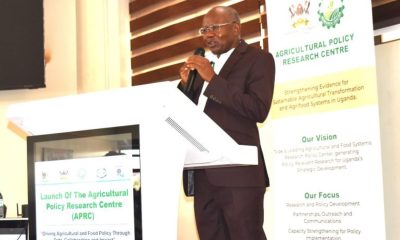

APRC Trains Graduate Students & Stakeholders in the Use of the African Agriculture Adaptation Atlas
-
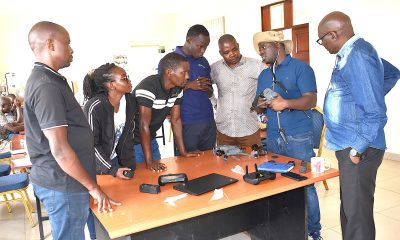

NbS4Tea Project Team Makes Great Progress, Deploys Drones for Data Collection
-
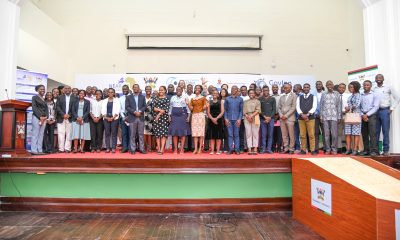

Strengthening Europe-Africa Higher Education Collaboration through the NEAR-ER Project
-
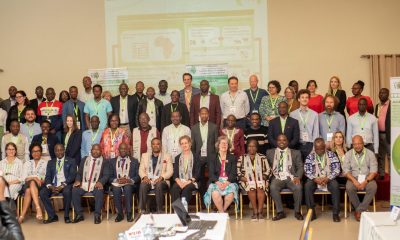

PREPARE4VBD Project Holds Final Workshop in Uganda; A Landmark in Vector-Borne Disease Preparedness
-
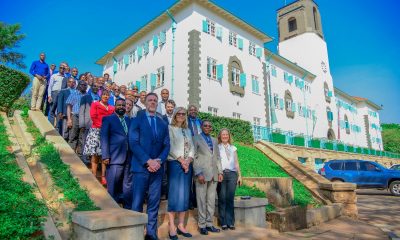

Amb. Tone Tinnes Visits Mak, Gains Insight into NORHED II Projects
-
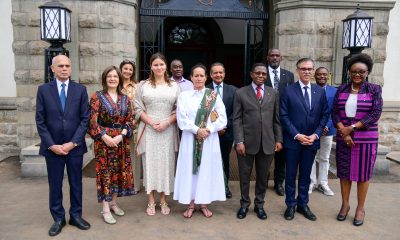

Princess Zahra Aga Khan Visits Mak, Tours Innovation Pod
Agriculture & Environment
APRC Trains Graduate Students & Stakeholders in the Use of the African Agriculture Adaptation Atlas
Published
6 days agoon
July 3, 2025
The Agricultural Policy Research Centre (APRC), housed within the College of Agricultural and Environmental Sciences (CAES) at Makerere University, continues to play a pivotal role in shaping Uganda’s agricultural future through evidence-based policymaking. With a mission to ensure that agricultural policies are grounded in empirical research and data, APRC is actively investing in capacity-building initiatives that empower researchers, policymakers, and development actors.
In a significant stride toward building climate resilience in African agriculture, APRC recently organized a two-day intensive training workshop focused on the African Agriculture Adaptation Atlas (AAAA) – a state-of-the-art, web-based decision-support platform that facilitates the integration of climate data into agricultural planning and policy.

The workshop, held on Wednesday 25th and Thursday 26th June 2025 at the School of Agricultural Sciences, Makerere University, targeted two key groups: graduate students on the first day, and university faculty, government officials, and development practitioners on the second. This structure ensured tailored learning experiences for both emerging and seasoned professionals, helping to bridge the gap between academic research and real-world policy implementation.
The African Agriculture Adaptation Atlas (AAAA) is designed to provide dynamic, data-rich visualizations that support informed decision-making in agriculture and food systems across the continent. Through interactive maps and analytical tools, users can explore projected climate impacts, evaluate risks, and identify localized, climate-smart adaptation strategies.

Throughout the sessions, participants received hands-on training in a broad range of AAAA functionalities, including:
- Leveraging the Atlas for research and policy communication: Enhancing the ability of scientists and policy actors to translate complex climate data into actionable insights;
- Assessing projected climate impacts and associated agricultural risks: Essential for forward-looking planning and risk mitigation;
- Identifying climate-smart investment options, with a particular focus on the livestock sector, which is especially vulnerable to climate shocks;
- Analysing gendered vulnerabilities: Examining how climate change disproportionately affects women in agricultural communities;
- Understanding the implications of heat stress on agricultural productivity: Supporting targeted interventions to protect producers and their livelihoods;
- Estimating the economic returns of adaptation strategies: Aiding in prioritizing investments and allocating limited resources effectively.

Prof. Bernard Bashaasha, the APRC Coordinator, emphasized the importance of the training in advancing Africa’s adaptation agenda. “As climate change continues to threaten food security and disrupt livelihoods across the continent, tools like the AAAA, and the skills to use them effectively are essential. They empower decision-makers to craft policies that are adaptive, inclusive, and rooted in science,” he noted.
The workshop was coordinated by Dr. Florence Rwiza, Lecturer in the Department of Agribusiness and Natural Resource Economics at CAES.
More photos from the Training






Agriculture & Environment
NbS4Tea Project Team Makes Great Progress, Deploys Drones for Data Collection
Published
2 weeks agoon
June 24, 2025
****Funded by the Danish Fellowship Centre under Denmark’s Ministry of Foreign Affairs, NbS4Tea is a five-year initiative aimed at enhancing climate resilience and tea productivity in Uganda.
Launch of drones for data collection
The Nature-based Solutions for Tea (NbS4Tea) project has registered a significant milestone with the successful deployment of drones to improve environmental and agricultural data collection.
On 19th June 2025, the project team officially launched the drones at the Rwebitaba Tea Research Centre in Kyenjojo District, the project’s main research hub. The launch event included hands-on training sessions by Mr. Timothy Mutungi, a certified Remote Sensing Drone Pilot. Mr. Mutungi provided detailed instruction on drone operation, safety procedures, and data acquisition techniques specifically tailored to the project’s goals. The training was attended the core NbS4Tea researchers as well as students supported by the project.

By utilizing drone technology, the team will be able to capture high-resolution imagery and gather critical environmental data across vast tea-growing areas. This will enable more precise assessments of biodiversity, soil health, water use, and overall ecosystem services. The valuable insights generated will guide the development of sustainable, nature-based agricultural practices with the potential for widespread adoption throughout the tea industry.
About the NbS4Tea Project
NbS4Tea is a five-year initiative aimed at enhancing climate resilience and tea productivity in Uganda. Funded by the Danish Fellowship Centre under Denmark’s Ministry of Foreign Affairs and led by Dr Emmanuel Arthur from Aarhus University, the project is being implemented through a consortium of Ugandan and Danish institutions namely: Makerere University, the National Agricultural Research Organization (NARO), Uganda, Uganda Tea Association, Aarhus University, Denmark, and Kick-start International.

The primary objective of the project is to sustainably close the tea yield gap in Uganda by developing research-driven, nature-based solutions that enhance the climate resilience of tea production systems. This involves identifying climate-resilient tea varieties, integrating tea prunings and banana by-products, utilizing nitrogen-fixing agroforestry trees, and improving irrigation management. The approach emphasizes socio-economic feasibility, capacity building in research, and a market-oriented, multi-stakeholder collaboration to ensure both environmental and economic sustainability.
At Makerere University, the project is coordinated by Dr Alex Nimusiima from the Department of Geography, Geo-Informatics and Climatic Sciences at CAES. Other Project members are; Dr Grace Nakabonge from the Department of Forestry, Biodiversity and Tourism; Dr Prossy Nakawuka from the Department of Agricultural and Bio-systems Engineering; Dr Twaha Ali Basamba from the Department of Agricultural Production; and Dr Alice Turinawe from the Department of Agribusiness and Natural Resource Economics.

Specific objectives
- Identify and quantify climate change impacts on tea yield and quality based on historical and newly obtained data and novel data mining methods.
- Screen, select and recommend tea varieties adapted to abiotic (drought and heat) and biotic stresses (diseases and pests).
- Develop new knowledge on the potential of local waste biomass (tea prunings, banana pseudostems and peels) as soil amendments- mulch, compost, biochar, to recycle nutrients, improve soil fertility, increase carbon sequestration and alleviate drought.
- Reveal NbS through agroforestry combined with organic mulch, irrigation and resilient tea varieties that increase biodiversity and tea yield.
- Innovate new methods to enhance tea production under climate change through rainwater harvest and climate-smart irrigation infrastructure.
- Empower vulnerable groups (women, youth, and people with disabilities) in tea production and processing to ensure multi-actor involvement and socio-economic benefit outreach of the proposed NbS in tea cultivation and production.
- Identify export market strategies for NbS tea products, aligned with consumer preferences.

Progress thus far
Launched in January 2024, the project, organized in five work packages, has registered significant progress. Each of the work packages listed below supports one PhD student and one Masters’ student. The PhD students are: i) Mr. Adiga Hassan from the Department of Geography, Geo-Informatics and Climatic Sciences at CAES conducting research under work package 1; ii) Ms. Sarah Namayengo from the Department of Forestry, Biodiversity and Tourism conducting research under work package 2; Ms. Vivian Namutebi from the Department of Soil Science and Land Use Management undertaking research on work package 3; Mr. Keneth Chelimo from the Department of Agricultural and Biosystems Engineering conducting his research under work package 4; and Ms. Moreen Asasira from the Department of Agribusiness and Natural Resource Economics focusing on work package 5. The Masters students are: i) Ms. Evelyn Katasi from the Department of Environmental Management at CAES (work package 1), Mr. Vereriano Turyahebwa from Department of Forestry, Biodiversity and Tourism (work package 2); Mr. Ben Okurut from the Department of Soil Science and Land Use Management (work package 3); Mr. Augustine Okot from the Department of Agricultural and Biosystems Engineering (work package 4); and Mr. Augustine Kigozi from the Department of Agribusiness and Natural Resource Economics (work package 5)

Work packages and achievements registered
Work Package 1: Climate change impacts on tea yield and quality – Headed by Dr. Alex Nimusiima
This work package centres on the analysis of historical and projected climate conditions in the study area. It examines how current climate patterns influence tea production, as well as the potential effects of future climate change on tea yield and quality.
Progress
i) A household survey assessing the socio-economic status of tea farmers and the effects of climate variability on their livelihoods has been completed.
ii) The collected data has been cleaned, and the Masters student supported under this work package is currently writing her thesis based on the survey findings.
iii) A historical climate analysis of the study area has been conducted by the PhD student, who is now preparing a manuscript.

Work Package 2: Screening & selecting tea genotypes for resilience to abiotic and biotic stresses – Headed by Assoc. Prof. Grace Nakabonge
This work package focuses on evaluating existing tea genotypes for their resistance to pests and diseases, using chlorophyll fluorescence imaging as a diagnostic tool.
Progress
i) A screen house has been constructed to serve as the experimental site.
ii) Germplasm from two tea varieties is currently being cultivated in the screen house in preparation for the upcoming experiments.
iii) A drone has been acquired to assist in data collection for this work package.

Work Package 3: Evaluation of NbS for climate resilience, higher yield and biodiversity- Headed by Assoc. Prof. Twaha Ali Basamba
This focuses on the characterization of mulch and biochar derived from tea prunings to improve soil health. It also aims to quantify the added value of Nature-based Solutions (NbS) in enhancing tea productivity, promoting climate resilience, and supporting biodiversity.
Progress
- So far, Biochar has been produced from tea prunings and characterized.
- The Masters student supported under this work package is writing his thesis on the results of biochar characterization.

Work Package 4: Innovating smart and scalable irrigation technology for improved tea production- Headed by Dr. Prossie Nakawuka
This work package aims to develop and evaluate smart, scalable irrigation solutions to boost tea production. It focuses on assessing how irrigation impacts tea yield and quality, measuring water use efficiency, and analyzing the economic returns of irrigation practices. Additionally, it explores deficit irrigation and climate-resilient strategies to ensure sustainable tea farming in changing environmental conditions.
Progress
- The irrigation infrastructure is now in place and fully operational at Rwebitaba Tea Research Centre in Kyenjojo District.
- The experimental plots for irrigation experiments are already in place with water pipes.

Work package 5: Socio-economic assessment of tea-agroforestry and selected tea varieties – Headed by Dr. Alice Turinawe
This work package emphasizes co-creation within multi-stakeholder innovation networks to evaluate the economic feasibility and market access of tea agroforestry systems. It also focuses on promoting gender balance and understanding consumer valuation of Nature-based Solutions (NbS) tea from Uganda.
Progress
To date, two co-creation workshops have been successfully conducted and the Masters student under this work package is currently analyzing the workshop results as part of their research.

Expected outputs and outcomes
- Increased tea production, productivity, and biodiversity through the adoption of NbS.
- Increased research and technical capacity of Makerere and R-ZARDI.
- Holistic stakeholder insight on economic feasibility, consumer acceptance and market access strategies, especially for vulnerable groups in the tea value chain.
- Increased job prospects for youth and women in tea production sub-sectors.
- Improved social status and increased incomes of tea farmers, traders, and exporters.
- Improved economic and environmental quality by recycling biomass waste into value-added products dedicated to soil enhancement.
- 4+ high-yielding tea genotypes adapted to drought and heat, diseases and pests.
- 15+ scientific articles, conference presentations.
- Five PhDs and Five MSc degrees.
- Market access assessment and empowerment.

Details on the project: https://news.mak.ac.ug/2024/01/new-caes-project-to-improve-tea-production-in-uganda/
More photos from the event



Agriculture & Environment
New Mak-CAES Project to Spur Green Growth in East Africa
Published
4 weeks agoon
June 13, 2025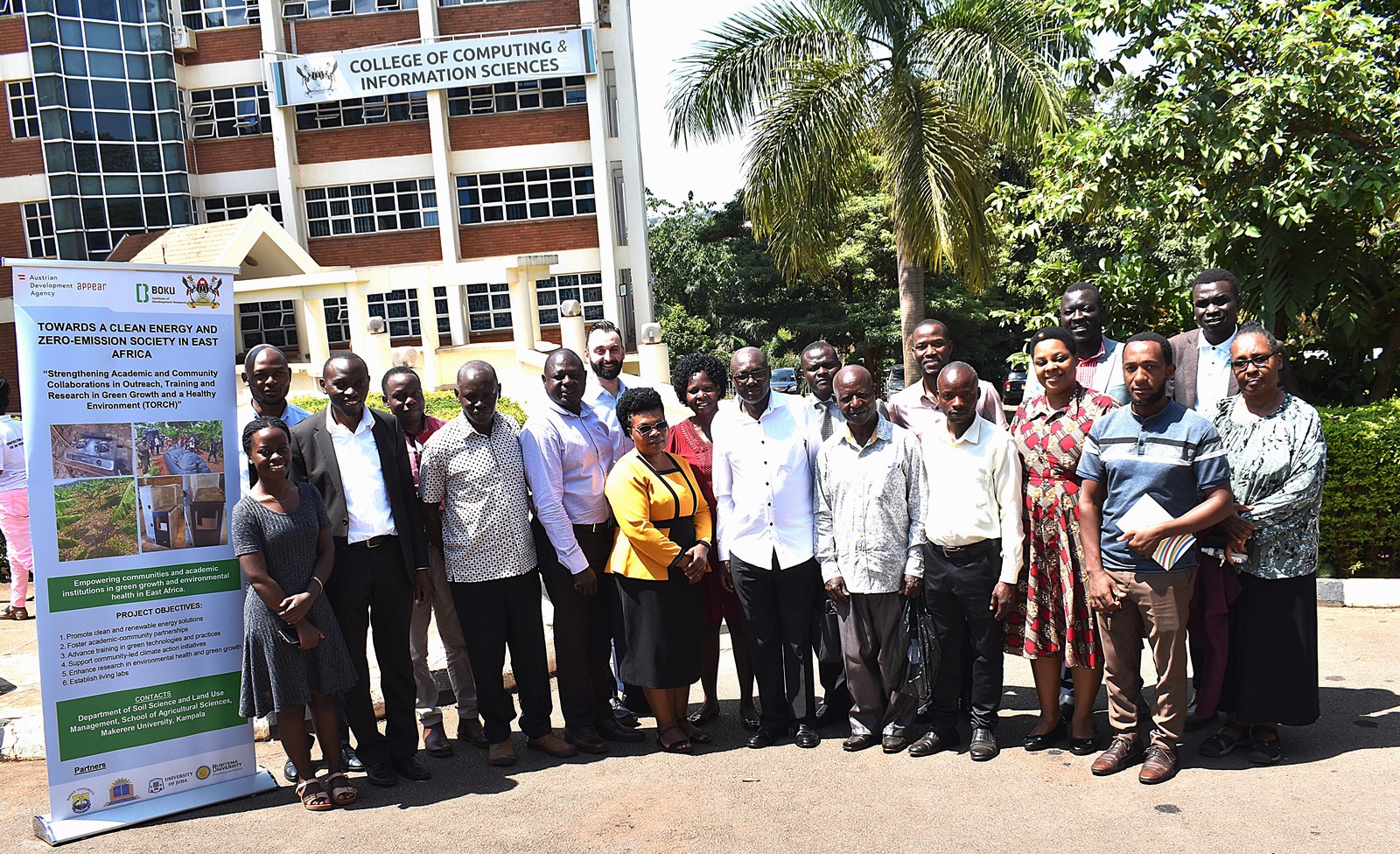
Makerere University, through its Department of Soil Science and Land Use Management at the College of Agricultural and Environmental Sciences (CAES), has launched a new project aimed at fostering green growth and promoting sustainable development across East Africa. This initiative aligns with global efforts to combat climate change and create eco-friendly, low-carbon communities through collaborative research, education, and technology.
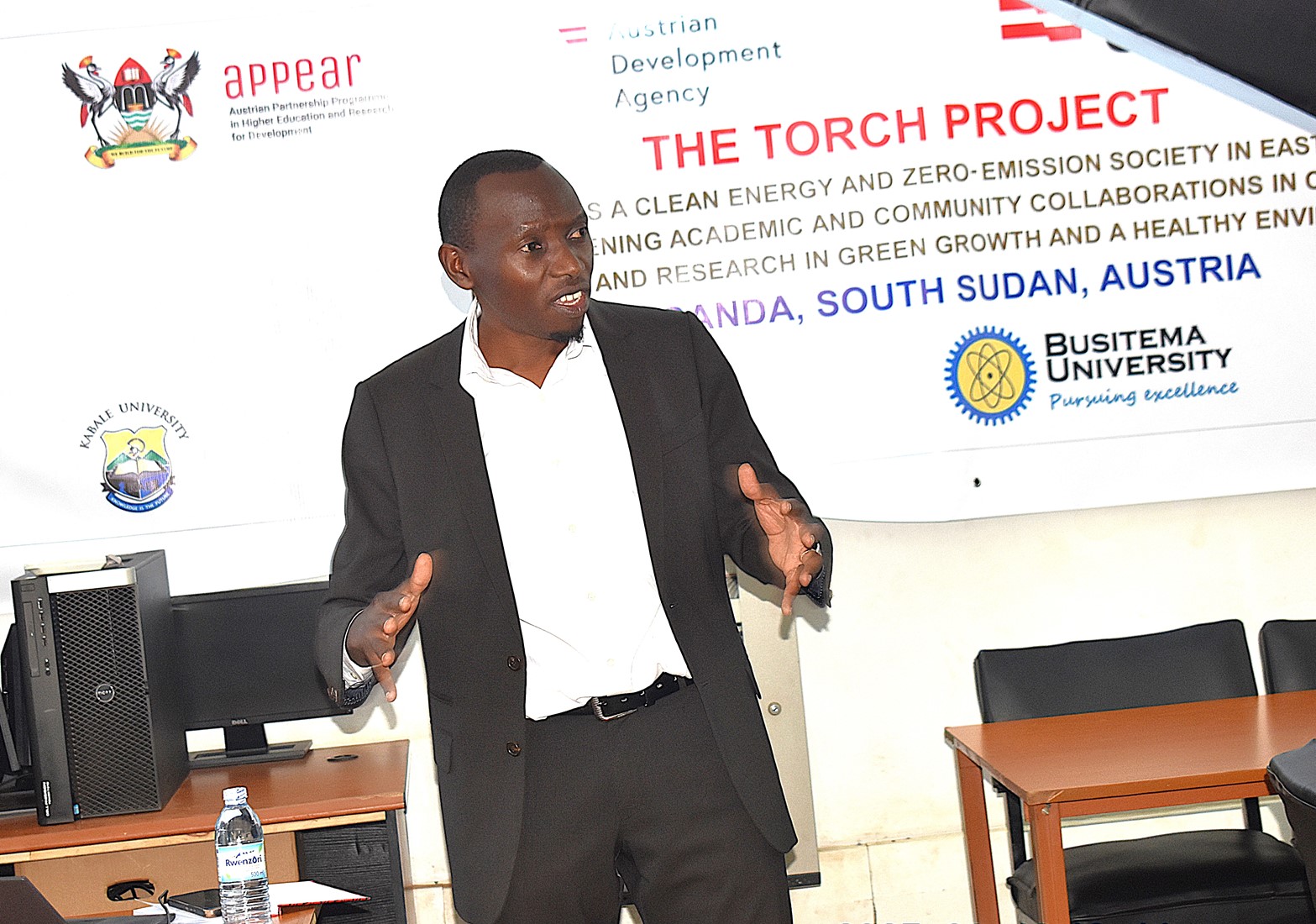
Introducing the TORCH Project: Towards a Clean Energy and Zero-Emission Society
The two-year project, code-named TORCH (Towards a Clean Energy and Zero-emission Society in East Africa), seeks to strengthen cooperation between academia and local communities to promote green growth and environmental sustainability. Funded by the OeAD-GmbH under the Austrian Partnership Programme in Higher Education Research for Development (APPEAR), TORCH focuses on clean energy solutions, carbon emission reduction, and community empowerment through training, research, and co-creation of green technologies.
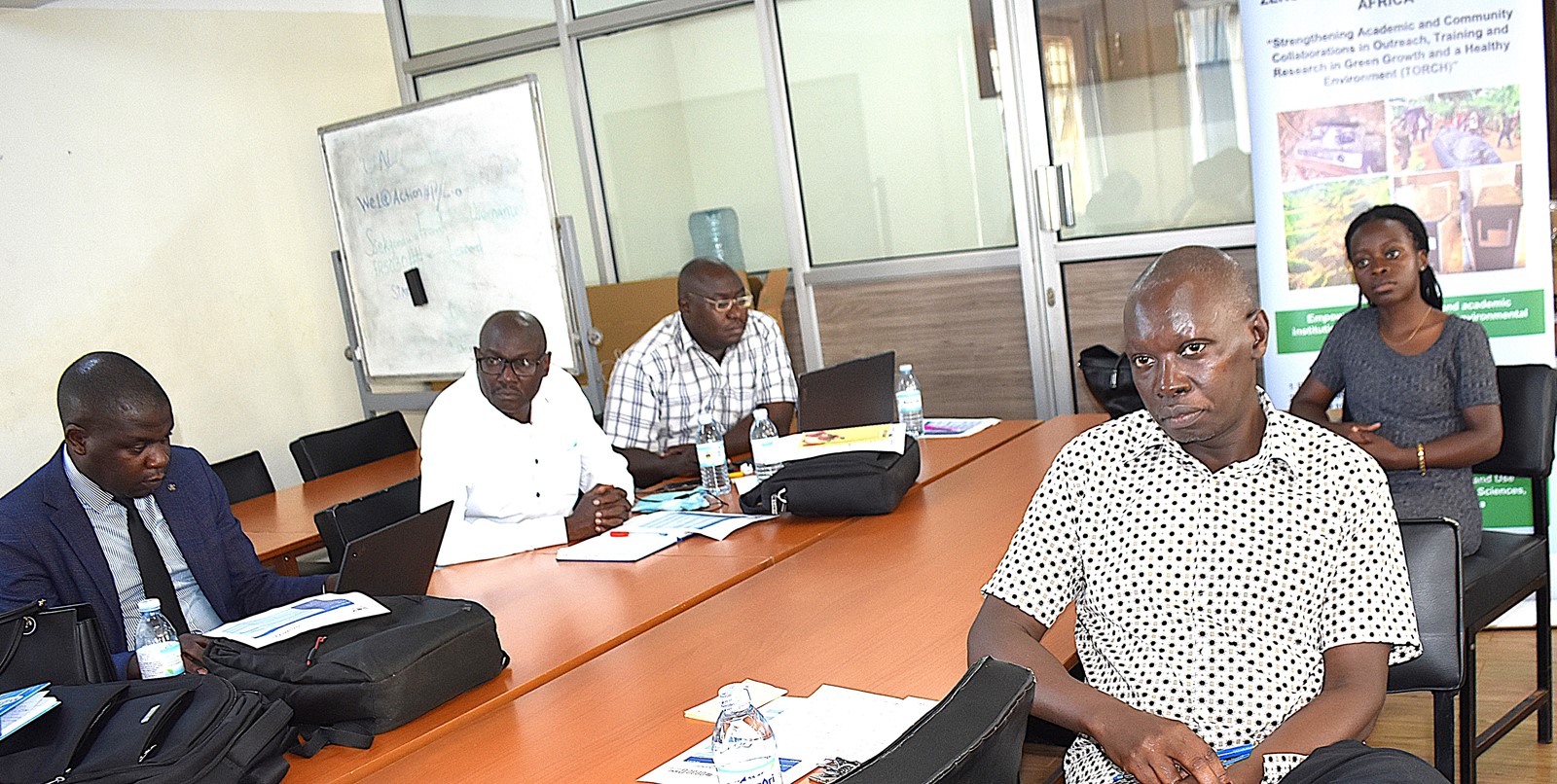
Officially launched by the Principal of CAES, represented by Dr. Paul Mukwaya, Head of the Department of Geography, Geo-Informatics and Climatic Sciences at Makerere University, TORCH builds upon existing East African government policies. The project will implement the innovative concept of living labs, where universities, communities, and stakeholders co-design, co-create, and co-produce affordable, reliable green technologies tailored to local needs.
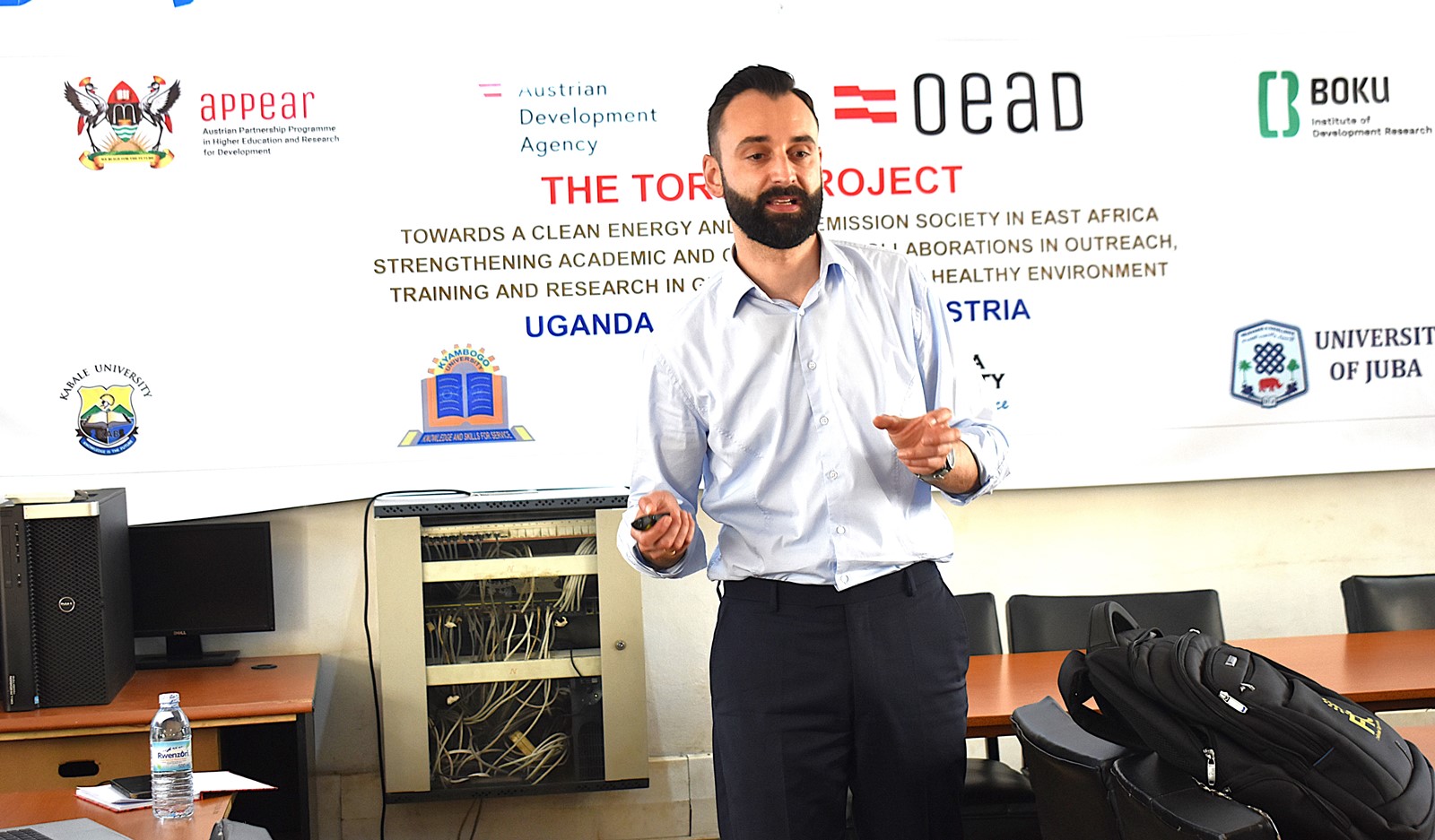
Key Objectives and Activities
TORCH aims to:
- Enhance teaching on green growth by integrating principles into selected academic curricula.
- Establish three living laboratories in Central, South Western, and Eastern Uganda to boost co-creation on energy efficiency and low-carbon emissions.
- Increase human capacity through short courses, field research, and training.
- Empower women in science and technology.
- Promote novel green technologies and support policy transformation.
- Strengthen partnerships among universities in East Africa.
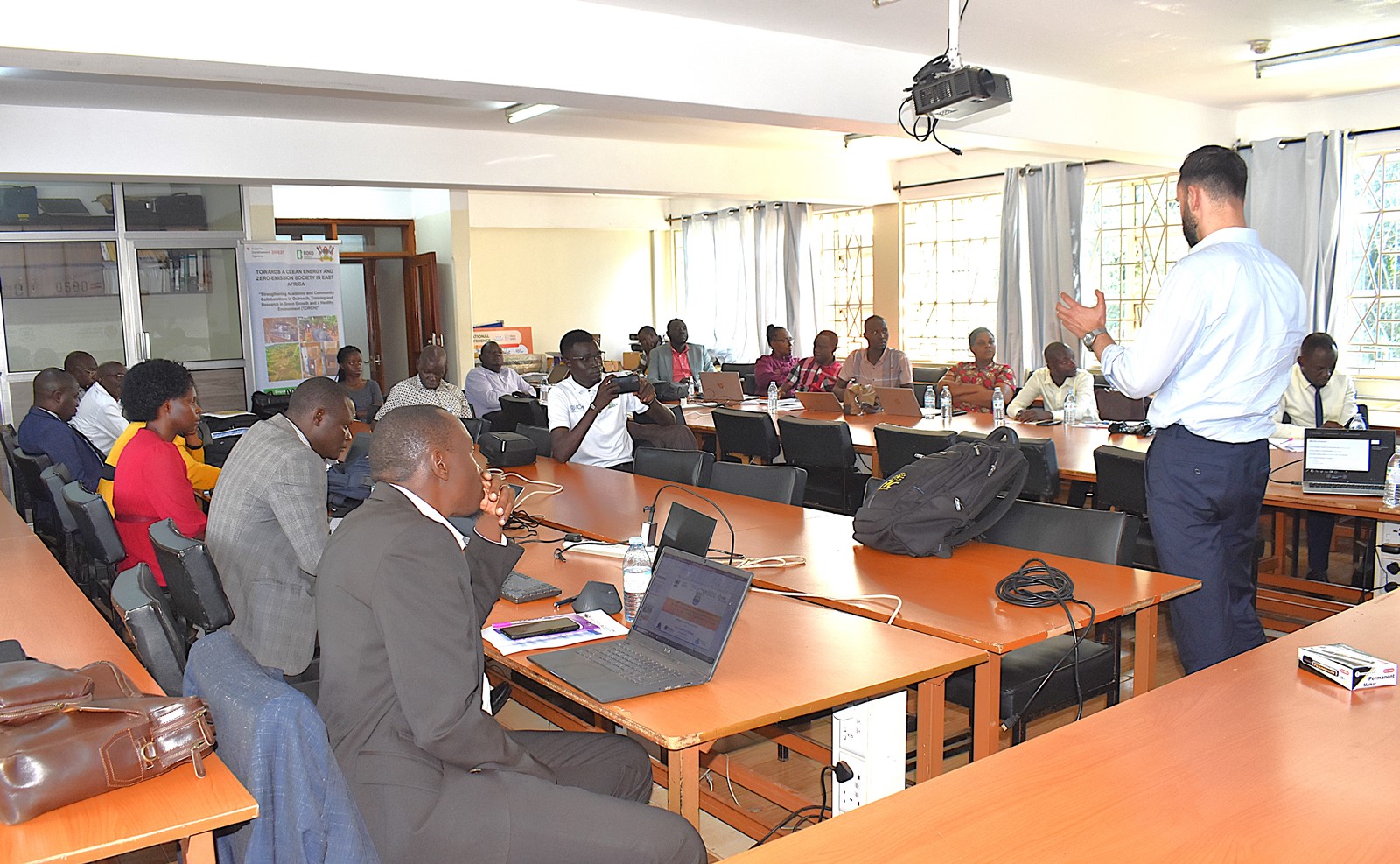
These activities directly contribute to achieving several Sustainable Development Goals (SDGs), including SDGs 4 (Quality Education), 5 (Gender Equality), 6 (Clean Water and Sanitation), 7 (Affordable and Clean Energy), 12 (Responsible Consumption and Production), and 13 (Climate Action), while also reducing health risks and conserving the environment.
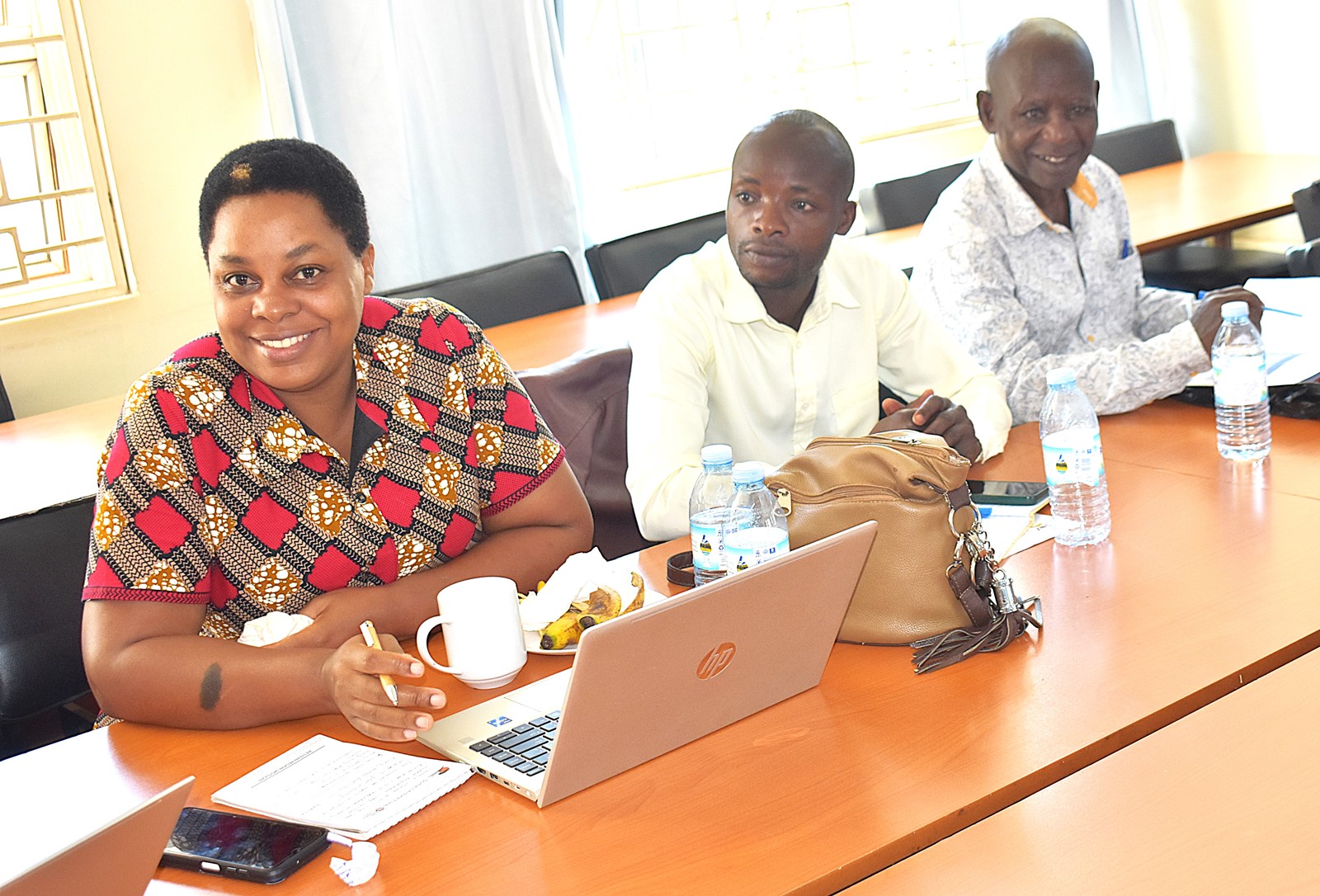
Leadership and Partner Institutions
The overall project coordinator is Dr. Patrick Musinguzi, Lecturer in the Department of Soil Science and Land Use Management at Makerere University. TORCH involves several partner institutions, including: Makerere University (Uganda), University of Natural Resources and Life Sciences, Vienna (Austria), Kabale University (Uganda), Busitema University (Uganda), Kyambogo University (Uganda), and the University of Juba (South Sudan).

Highlights of the Launch Ceremony
During the launch ceremony held in the GIS Lab at Makerere University, and attended by representatives from the partner institutions, Dr. Musinguzi presented an overview of TORCH, outlining key strategies for implementation and expected outcomes. Central to the project’s strategy is the integration of green growth principles into Makerere University’s academic curriculum. This will be formally proposed to the University Management for adoption. Additionally, the project aims to strengthen the university’s research agenda in this critical area. This will involve supporting faculty and student-led research projects and generation of evidence-based insights on green growth to influence policy at both local and national levels. There are also plans to establish three living labs in Central, South Western, and Eastern Uganda to serve as practical hubs for advancing green growth.
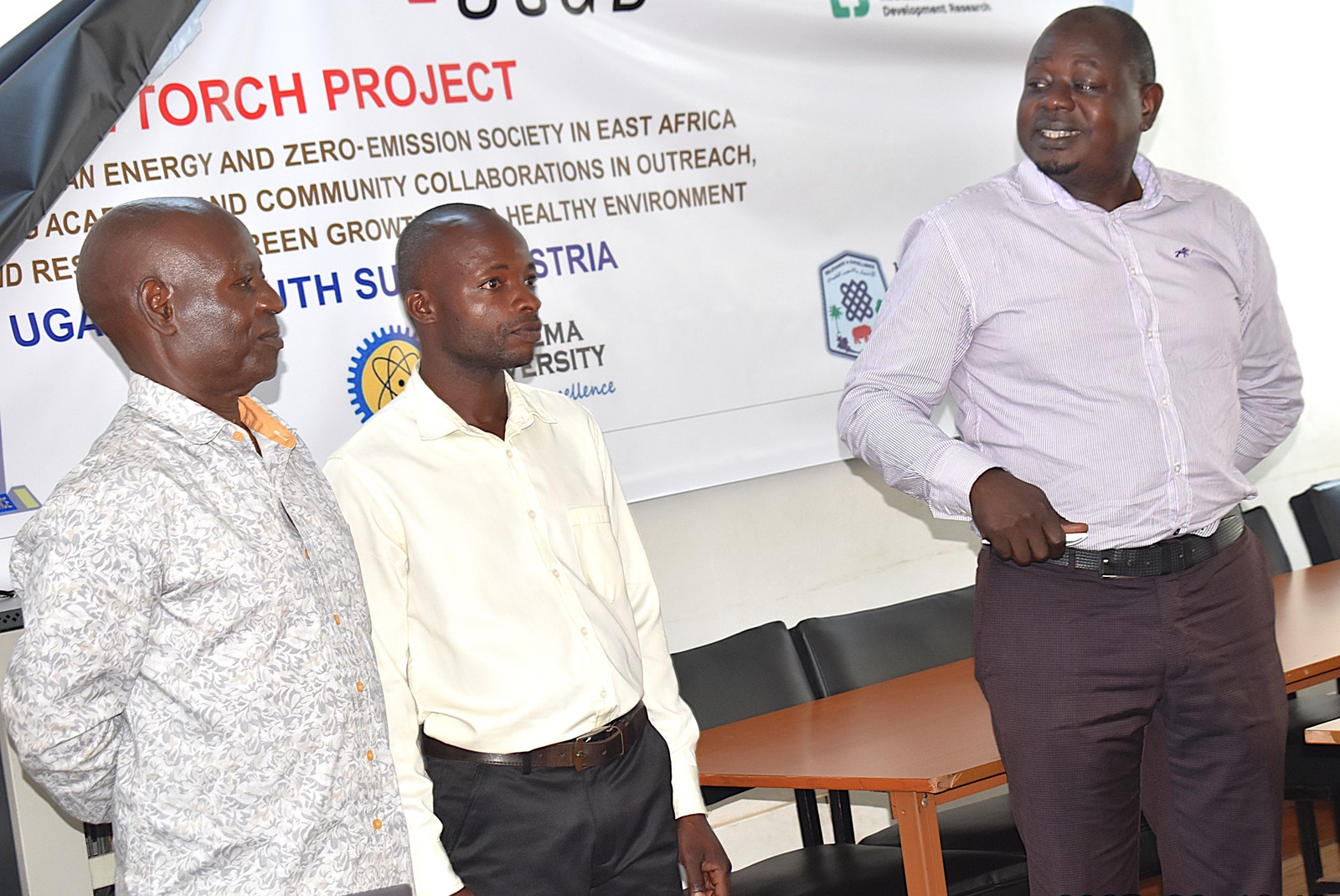
Expert Insights on Community Engagement
In his presentation, Mr. Andreas Bauer from the University of Natural Resources and Life Sciences, Vienna provided valuable insights into the critical role that living labs play in promoting sustainable, green growth. Highlighting practical examples and innovative approaches, Mr. Andreas Bauer emphasized how living labs serve as dynamic platforms for collaboration between researchers, industry stakeholders, and local communities, enabling real-world experimentation and the development of eco-friendly solutions that drive environmental and economic progress.
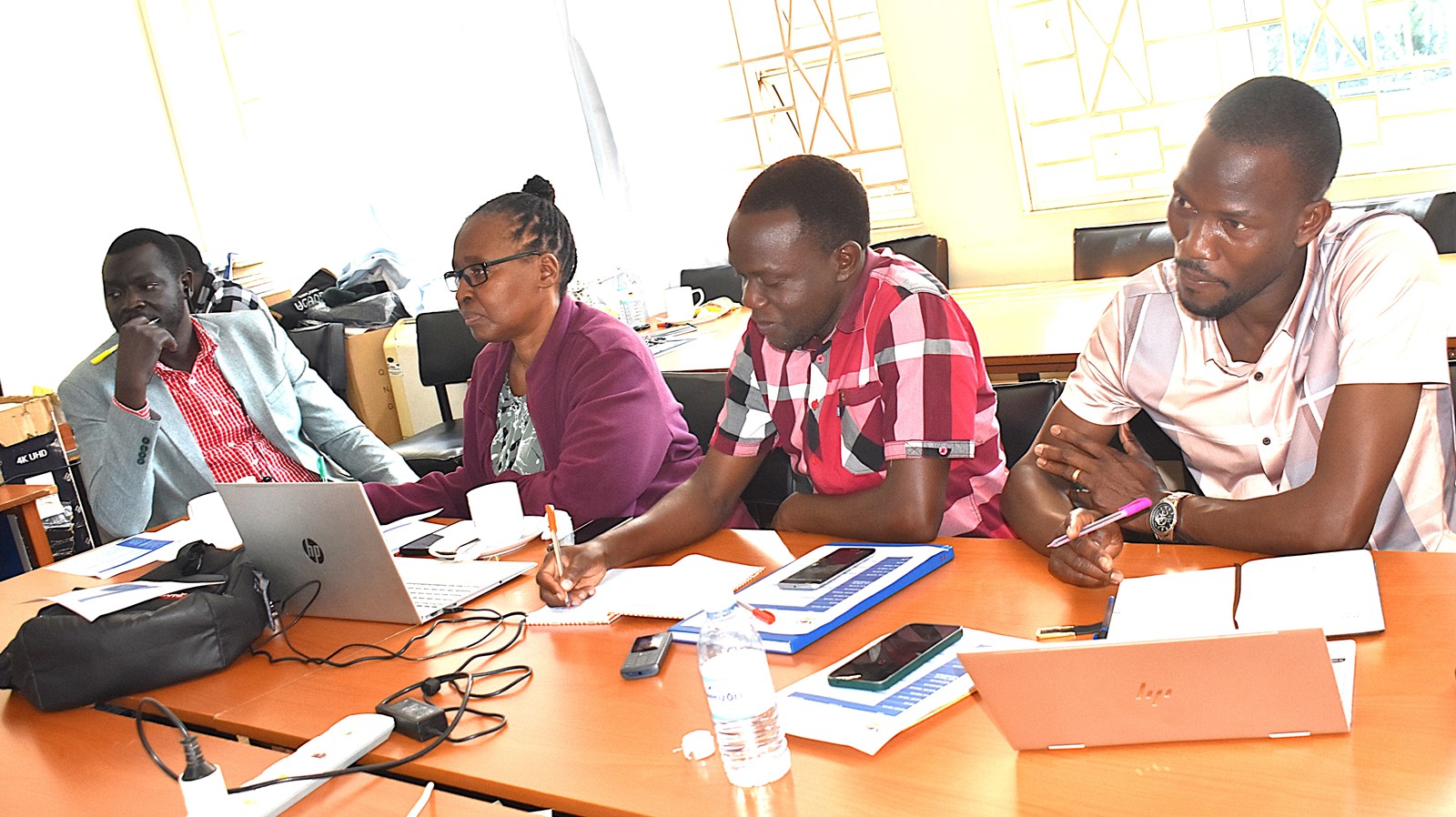
To emphasize the importance of collaboration between local communities and the academia, Mr. Kayanja Susane, a farmer from Kawumu Village in Luweero District, explained that, with guidance and support from the project team, he learned to produce biogas from animal waste -a reliable source of energy that reduces dependence on traditional fuels, subsequently minimizing environmental degradation.
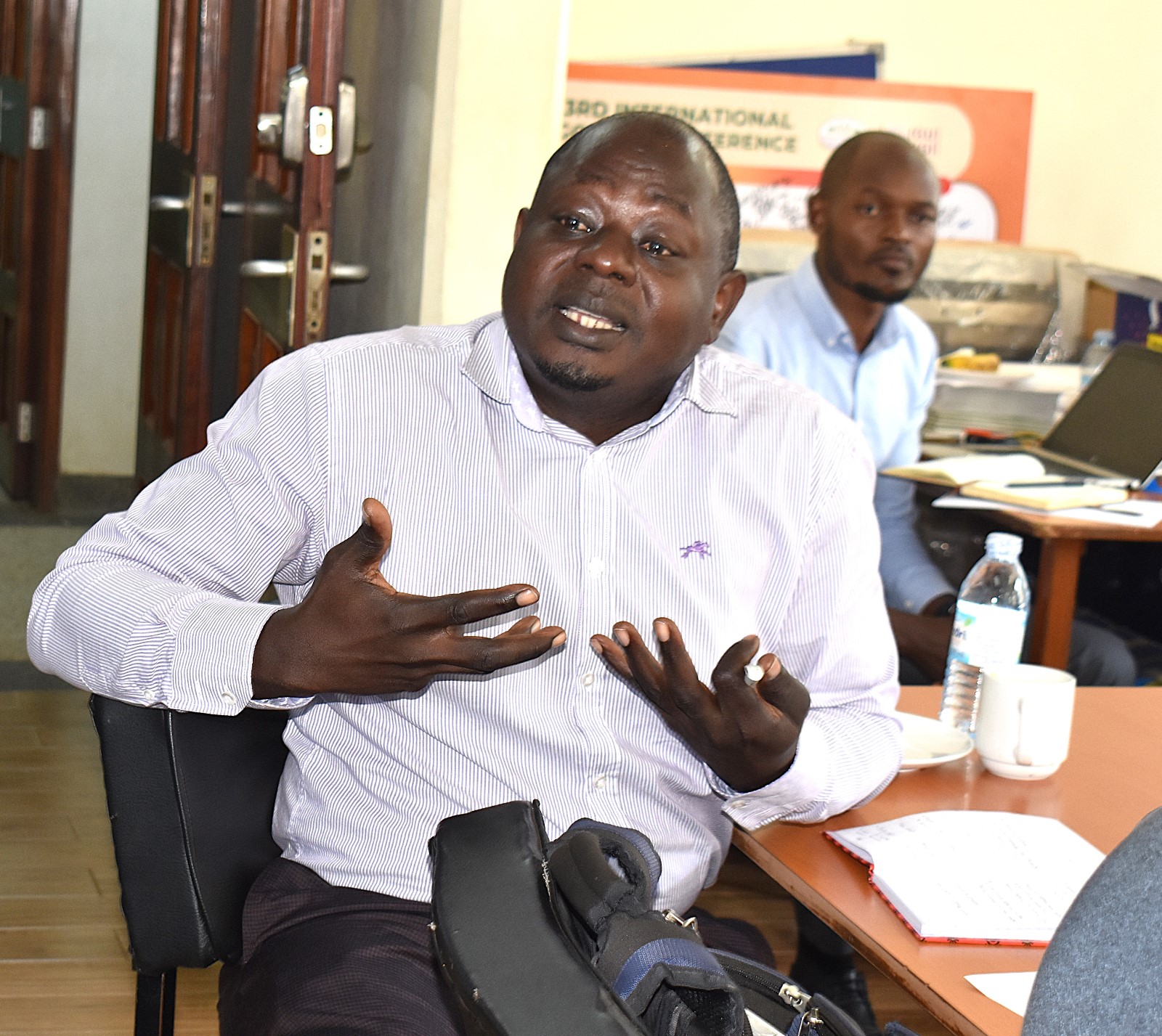
Research Focus
As part of the strategy to guide implementation, the project team brainstormed potential ecological and social indicators of low emissions in homesteads, and proposed several research areas to support green growth. Proposed research areas include:
- Life cycle analysis
- Circular economy practices within homesteads
- Gender integration and the intersection of gender with green growth
- The role of livestock in promoting green growth
- Evaluating the impact of interventions on total emissions
- Barriers to adopting green innovations
- The use of indigenous knowledge in promoting green growth
Addressing the participants, the Principal of the College of Agricultural and Environmental Sciences (CAES), represented by Dr. Paul Mukwaya, Head of the Department of Geography, Geo-Informatics, and Climatic Sciences at Makerere University, commended the project as a timely initiative aligned with the University’s research agenda. He underscored the importance of collaborating with other stakeholders, noting that similar projects have been conducted within and outside Makerere. Dr. Mukwaya called for the adoption of the theory of change framework to ensure the project delivers measurable, sustainable impacts that extend beyond policy briefs and gender mainstreaming, ultimately contributing to lasting green transformation in the region. He expressed appreciation to the project funders for their unwavering support to Makerere University.
Trending
-

 Education5 days ago
Education5 days agoAdmission List to Bachelor of Education External (BED) 2025/26 -Private Sponsorship
-

 General1 week ago
General1 week agoUndergraduate Admission List Self Sponsorship Scheme 2025/2026
-

 General2 weeks ago
General2 weeks agoMature Age Scheme Exam Results for 2025/2026
-
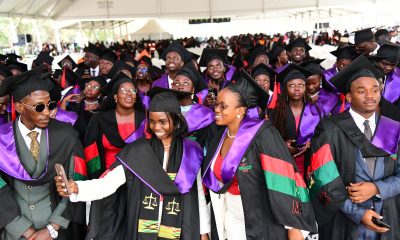
 General6 days ago
General6 days agoAdmission Lists for – Bachelor of Laws 2025-26
-
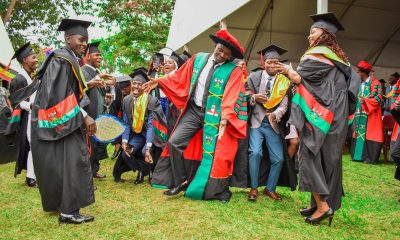
 General6 days ago
General6 days agoDiploma/Degree Holders Scheme – Self Sponsorship Admission Lists 2025/26
